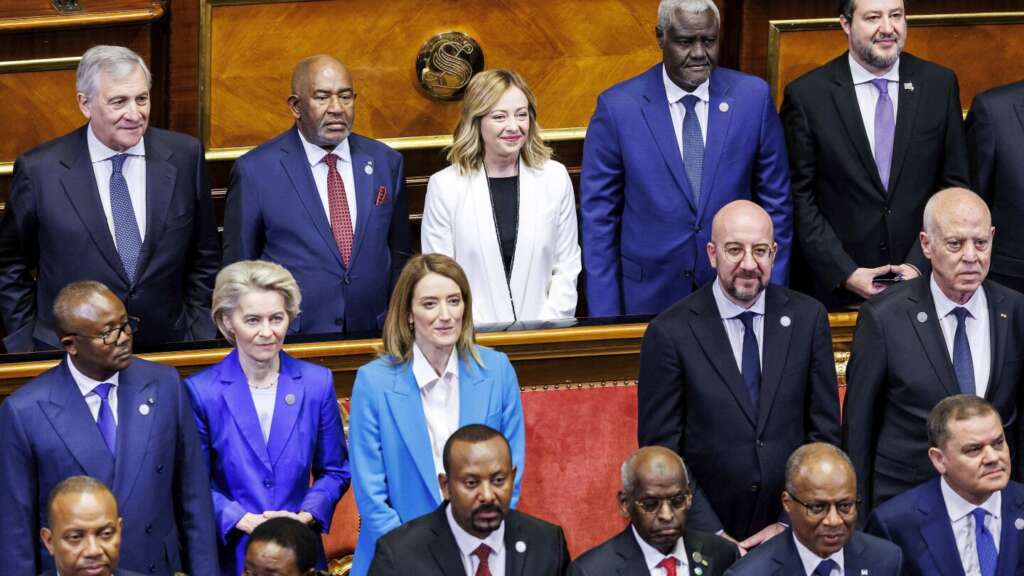A new initiative aimed at integrating African refugees into the Italian labor market has been launched with support from the International Trade Centre (ITC). The program, titled “ReadyForIT: Labour Pathways for Refugees,” is a collaborative effort led by Italy, in partnership with the UN Refugee Agency (UNHCR) and the Accenture Foundation. This pilot project seeks to equip refugees with vital skills in software programming to create sustainable employment opportunities and restore dignity to individuals displaced by conflict and persecution.
Overview of the ReadyForIT Program
The ReadyForIT pilot program was specifically developed to support refugees from diverse sub-Saharan countries who are currently housed in Uganda. While many refugees with professional skills can enter Italy through the Work Corridors for Refugees program, this initiative focuses on unskilled individuals, providing them with the opportunity to learn new skills and enter the IT workforce.
The first cohort of 25 refugees has been selected to participate in online training programs designed to teach them essential IT skills. The training includes in-depth courses on Java and SQL programming languages, as well as Italian language instruction to aid their integration into Italian society. Upon completing the program and passing a final test, these refugees will be given the opportunity to formally migrate to Italy with secured work contracts.
SEE ALSO: Dr. ‘Bosun Tijani Visits Kano, Announces Renovation of Vandalized NCC Digital Innovation Park
Building Pathways to Sustainable Employment
One of the key highlights of the ReadyForIT program is its focus on providing refugees with a formal and safe pathway to migration through employment. The program is structured to match the refugees’ newly acquired IT skills with the growing demand for tech talent in Italy. Participants who successfully complete the program will join leading companies in Italy, including Accenture, Aubay, Btinkeeng, Gruppo SCAI, OverIT, Reale ITES, and Valuetech. These companies are committed to offering positions that enable refugees to apply their newfound skills while building meaningful careers.
This initiative recognizes that many refugees, after fleeing their homes, are often faced with a lack of opportunities to rebuild their lives in their first host country. Without access to education and employment, it can be difficult for displaced individuals to regain their sense of purpose and dignity. The ReadyForIT project aims to address this by offering refugees a chance to acquire marketable skills and secure employment in Italy’s growing IT sector.
The Global Refugee Crisis and the Role of Work
The UNHCR reports that more than 120 million people worldwide have been forced to leave their homes due to conflict, persecution, and human rights violations. While refugees are provided temporary shelter and basic aid, they often face significant challenges when trying to rebuild their lives. Lack of access to education, limited job opportunities, and legal barriers often prevent refugees from integrating into their host countries in a meaningful way.
Through the Work Corridors for Refugees program, the UNHCR and its partners aim to leverage refugees’ skills and potential by connecting them with industries that are in dire need of labor, such as the IT sector in Italy. This initiative not only addresses the labor shortage in Italian companies but also provides refugees with a way to support themselves and their families, creating a mutually beneficial relationship.
Key Partnerships and Training Support

Italian leader Meloni unveils plan to promote Africa development and curb migration at summit
The success of the ReadyForIT program hinges on the partnerships established between international organizations and local partners. The ITC played a crucial role in identifying local partners in Uganda to support the refugees in their journey. One of the key partners, Refactory, is a Ugandan-based tech academy specializing in reskilling African tech talent. Refactory worked closely with the selected refugees, preparing them for technical interviews with Italian employers and providing them with on-site tech coaching.
In addition, DevelHope, another training provider, delivered the comprehensive IT training to the participants. Together with Refactory, these partners ensured that the refugees received the technical and soft skills necessary to succeed in the Italian job market. The training focused heavily on Java development, one of the most in-demand programming skills globally, positioning the refugees as competitive candidates in the workforce.
Restoring Dignity through Employment
The ReadyForIT program not only offers refugees a means of employment but also restores a sense of dignity and purpose. For individuals who have been forced to leave their homes and start over, the opportunity to work, learn, and contribute to society is invaluable. The program emphasizes that training and work are essential tools for helping refugees regain confidence and rebuild their lives.
According to the UNHCR, this initiative is particularly significant because it recognizes the potential of refugees as valuable contributors to the workforce rather than seeing them solely as beneficiaries of humanitarian aid. By providing a formal path to employment, ReadyForIT is helping to create a model for other countries to follow in addressing the global refugee crisis.
Looking Ahead: The Future of Refugee Integration
As the pilot phase of the ReadyForIT program moves forward, there is optimism that the initiative will expand and provide even more refugees with the opportunity to resettle in Italy and other European countries. By aligning the skills of displaced individuals with the needs of the labor market, the program sets a precedent for how refugees can be integrated into industries that need workers, ultimately benefiting both the refugees and the host countries.
In conclusion, the ReadyForIT initiative demonstrates how international collaboration, targeted training, and innovative thinking can transform the lives of refugees. Through this program, Italy is not only addressing its labor shortage in the IT sector but also providing refugees with the tools to rebuild their futures and contribute to society with dignity.



